2016年,鲁豫对蔡志忠有过一次专访。镜头中的蔡志忠是一种不食人间烟火的模样。他对鲁豫讲述了自己从四岁一直到现在的故事,讲述了自己对于画画,公司,家庭,事业,宇宙各种各样的,不同常人的经历和想法。他说了很多足以引起人深思的话,比如:一个人孤独的时候,是智商最高的时候。比如:我从四岁半到现在过了别人十倍的人生。前几天,无意间翻到蔡志忠的《西游记》漫画,被他画的如来佛瞬间逗的笑了一整天。
蔡志忠对于中国的传统文化,有非常独到和深厚的见解。他的漫画作品中,有很大一部分是中国的传统文化,例如:《论语》,《道德经》,《孙子兵法》,四大名著等等的重新演绎和述说。这些看似非常严肃的国学,在他的笔下,通过生动的漫画形象和对话,总会让人看着看着就忍不住笑出来。而笑过之后,又会马上陷入沉思。我想,这大概就是蔡志忠的魅力所在吧。今天要分享的这组漫画,节选自蔡志忠的《老子说》(中英版)讲述的是“大智若愚”这几个字。
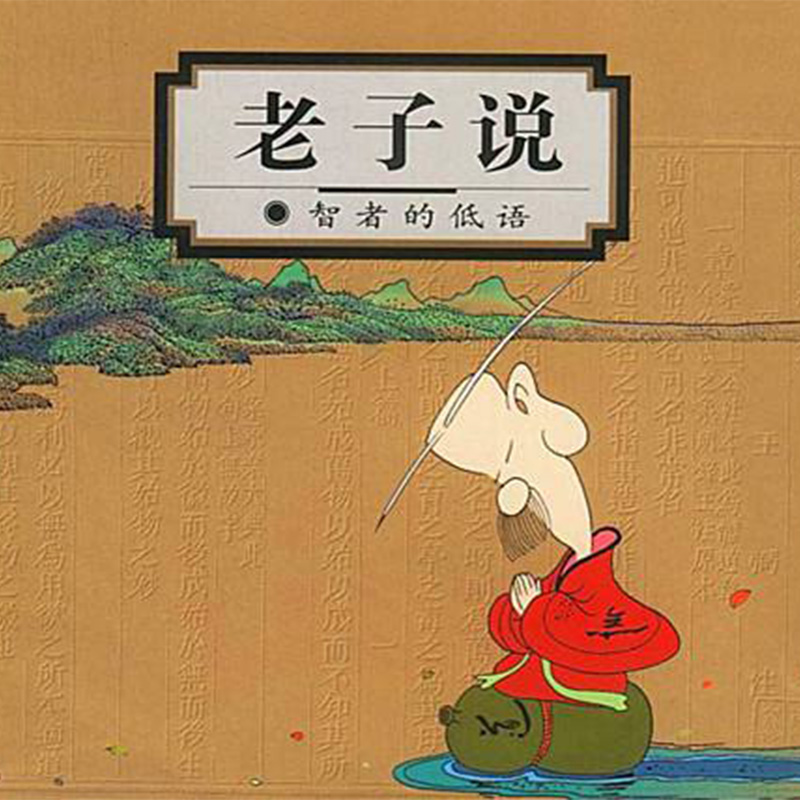
New Words:
ancient adj.古代的,已往的
exhibit vt.呈现;陈列,展览
intact adj.完好无损;原封不动的;
tongue n.舌头,喙;语言
fall out 争吵;结果;解散; 掉队
sway vi.摇摆;歪,倾斜
foolishness n.愚蠢,愚笨
concentrate vt.& vi.集中;专心于
From the most ancient times, the standard teachings had been: You must exhibit your strength and intelligence; don't let people think you are weak or foolish.
自古以来,一般的教诲都是: 人要表现坚强,不可柔弱 人要表现聪明,不要愚鲁!
However, a very unique man named Laozi appeared early on in Chinese history.
不过,中国历史上却出现一位“老子”与众不同。
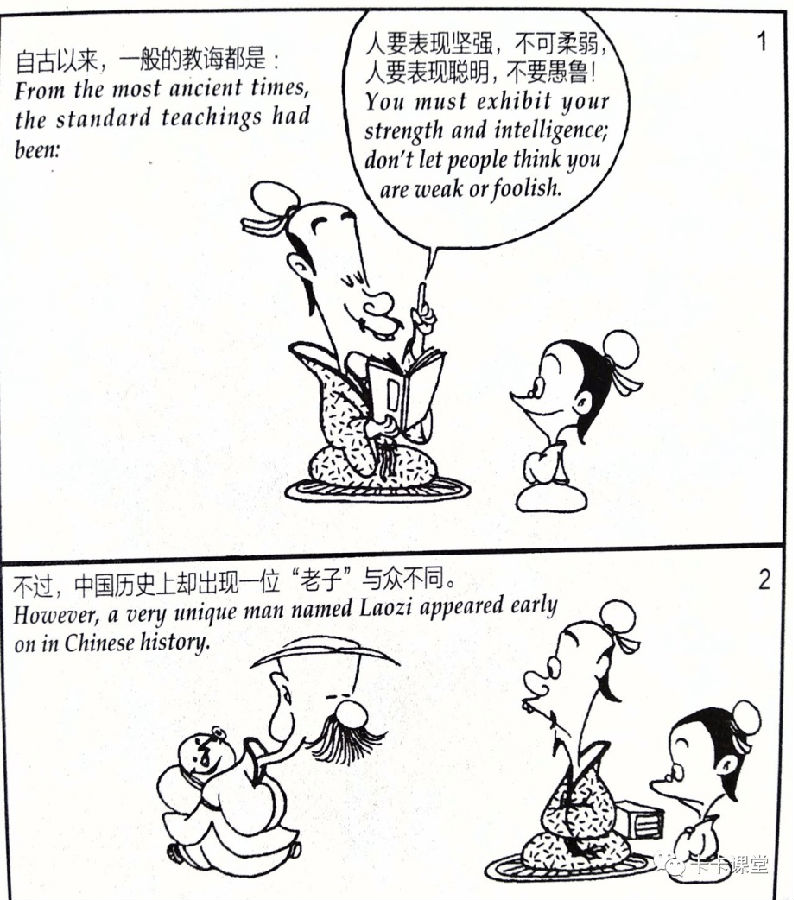
Most people think that being strong is good!
路人甲:一般人都认为,刚强好啊!
But strength will break where weakness will remain intact.
老子:刚强的容易折断, 柔弱的才能够保全。
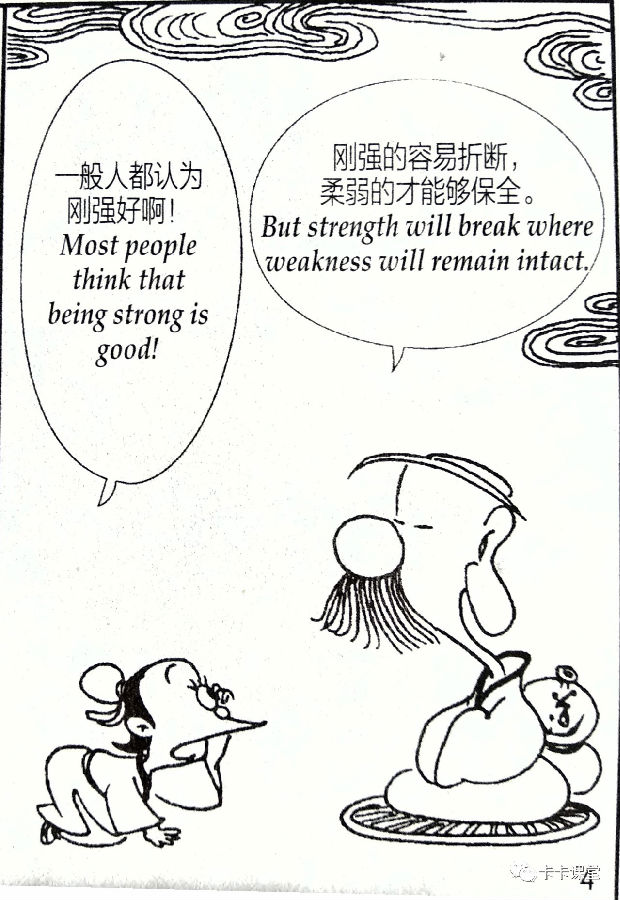
For instance, what's the hardest part of your body And what's the softest?
老子:比如说,你身上什么最硬?什么最软?
My teeth are the hardest and my tongue is the softest.
路人甲:牙齿最硬!舌头最软
Take a look, I'm so old that my teeth have all fallen out yet my tongue is just fine.
老子:你看,到了我这年纪全部脱落了,舌头却完好无恙。
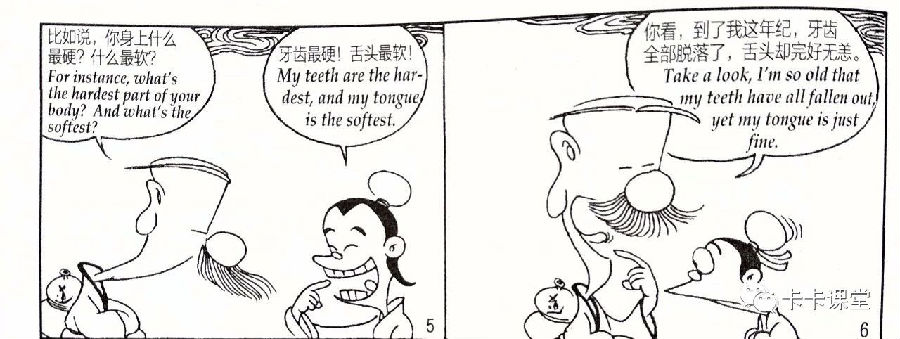
A huge tree is stronger than a tiny blade of grass, right?
老子: 大树比小草刚强吧?
Right!
弟子:是啊!
But in a typhoon, it's the huge tree that gets pulled up by the force of the wind, while the tiny grass just sways back and forth.
老子:台风来的时候大树经常被连根拔起,小草却完好无恙。
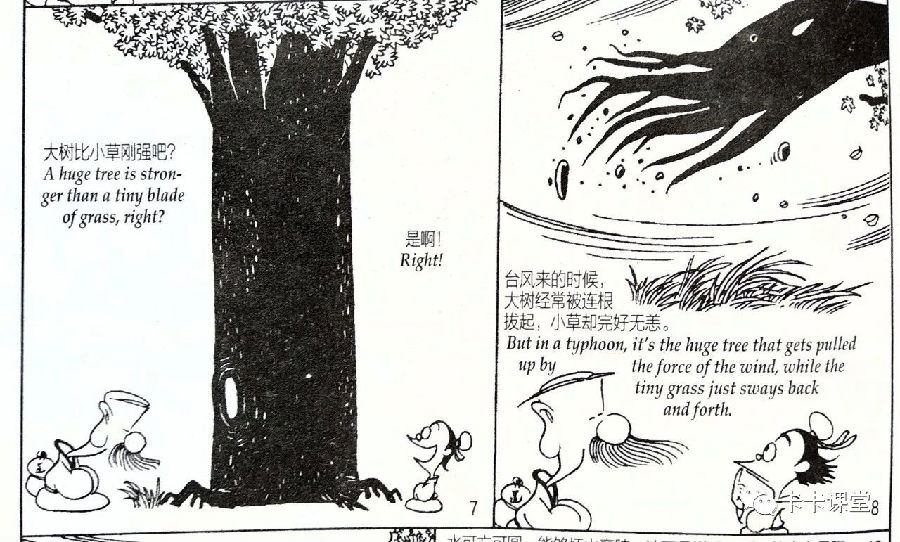
Most people think that intelligence is good, but a wise person should exhibit foolishness. Great wisdom appears to be foolishness.
老子:一般人认为聪明好,但一个智者应该表现愚鲁,大智若愚。大富翁通常深藏不露。
Wealthy people often give the appearance of having nothing.
大富翁通常深藏不露。
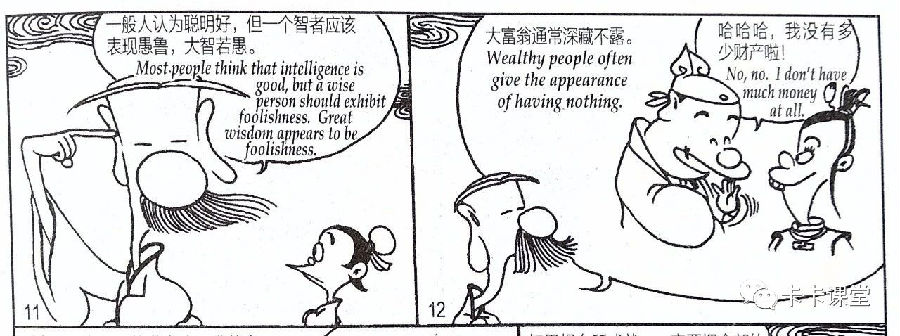
If you want to be a success, concentrate all of your energy and intelligence on one thing and play the fool in all others.
如果想有所成就,一定要把全部的智力、精力集中在一点,而在其他方面做一个愚者才行。
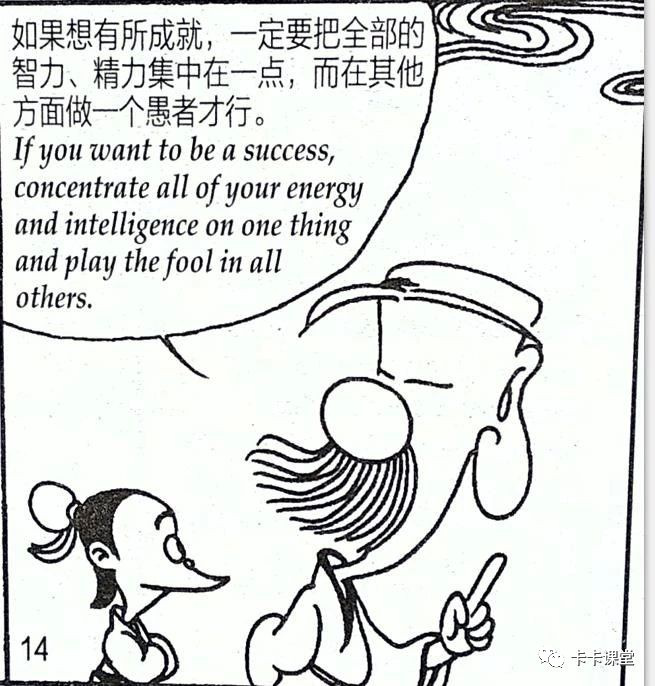
想知道卡卡老师的发音秘诀?关注微信公众号 卡卡课堂












